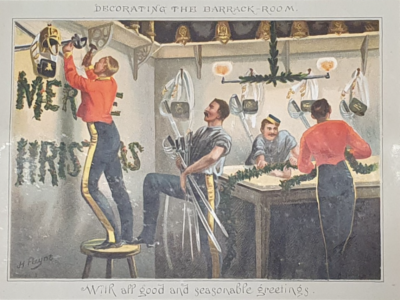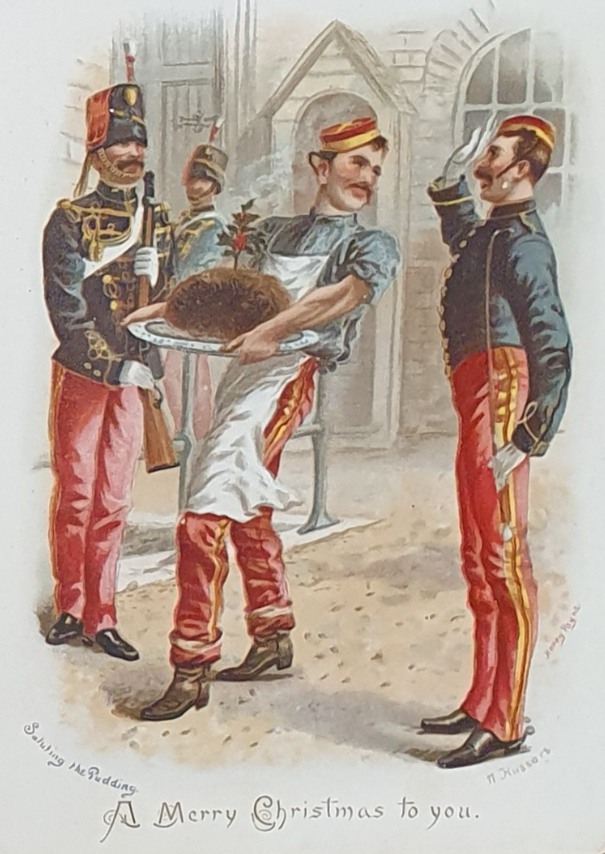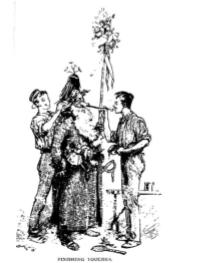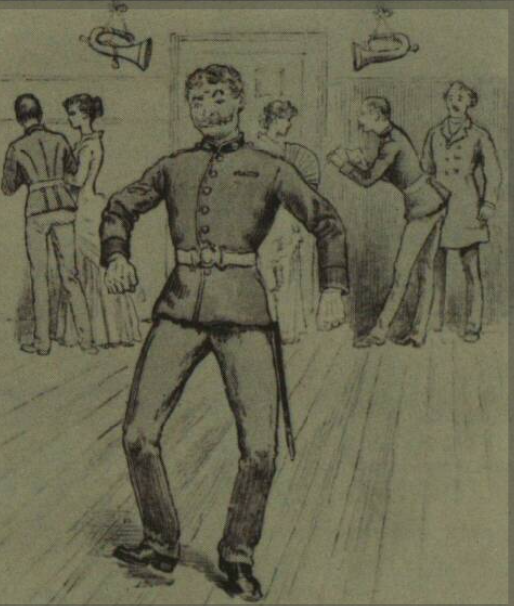Christmas in the Barracks
During the mid to late 1800s, in the days leading up to Christmas, recruits from the Barracks could be seen in and around Deal & Walmer foraging for greenery, returning with their arms full of Myrtle, Bay, Holly & Mistletoe.
Why you may ask? Well bringing greenery into the home at Christmas to brighten up the festivities is a long standing tradition, going back many centuries. Later, buying whatever ready made decorations that were available was beyond the pocket of most people and definitely beyond the reach of the soldier.
Back at the Barracks the men would have then set-to and every room was decorated and festooned with the greenery and Christmas dressings of the home-made variety.
This wasn’t just happening in Deal & Walmer though, it seems it had become somewhat of a tradition throughout the many Barracks of Britain up and down the country.
In the 1880s and 1890s the Deal, Walmer & Sandwich Mercury reported on these festivities describing the rooms and happenings in detail.
Most messes, including the infirmary, it said, received extra food of the “…Christmas character…”. Among the good things on offer were pork, turkey, goose & plum pudding of which “…everyman did his duty towards…”.
The married men in their quarters were not left out and were given their fair share of “…Christmas eatables from the canteen stores…” Those in the prisoners’ rooms were not forgotten and “…plum pudding honoured their board…”
It had also become a recognised custom for the soldiers to be given a short leave to visit family and friends. By now the train was the accepted way to travel and such was the demand that South Eastern Railway put on a special service, to and from London, for the men of the Depot who then scattered to families and friends further afield. In 1897 it was reported that over four hundred men left Deal on Christmas leave alone.
A substantial number, though, remained and for those, as tradition now dictated, Christmas morning began with Divine Service. The Garrison Church had received its fair share of attention from some of the wives and daughters of the Depot. With Church Service over, the next step of the day’s traditional programme was the inspection of the men’s quarters, by their commanding officer. This was followed by the officers and their ladies touring the rooms and sharing in the festivities. In one room, sitting around a stove, were “…dummies dressed as Father Christmas…” other rooms were festooned in flags and had banners of praise and well wishes to the officers.
All rooms had garlands of greenery tastefully arranged and Chinese lanterns were much in evidence. Paper chains and mottoes were hung saying such things as “Ready Aye Ready”, “It’s never too Late to Mend”, “Beer and Glory” and “God Bless our Humble Homes”.
As food was plentiful on this day offers of “…Please taste ours…” were gladly given and accepted.
During the afternoon “…large numbers of visitors arrived…” who were mainly the men, women and children of the Barracks, as well as invited guests from the town, and they too made a tour, exchanging seasonal greetings while admiring the cheerfully and ingeniously bedecked rooms.
Perhaps, for those afternoon visitors it was the tables of food and rarely seen luxuries, such as nuts, oranges, biscuits and wine, of which they were freely encouraged to “…partake of…” that was the most enjoyable and memorable part of their day.
Once the afternoon visitors had returned home a little “…merry making…” and dancing took place well into the evening, perhaps with specially invited ladies in attendance.
In 1886 the Barracks Chaplain announced, with some pride, that no man had been put under close arrest during the festivities. Considering there were then upwards of thirteen hundred “…young lads…” alone, stationed at the Barracks, he said “… spoke volumes for the high state of discipline and exemplary conduct of the men…”
Christmas over the special South Eastern trains once again were laid on bringing those men, who had hopefully enjoyed time with their families and friends, back to the Barracks where military life once again resumed for another year.




